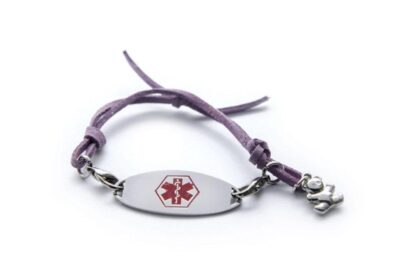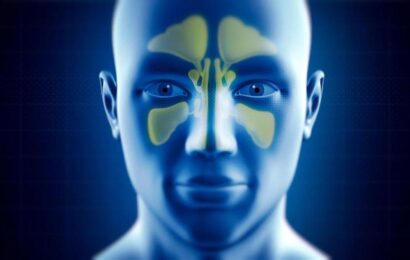How often do you think about your lips? We use lips to give kisses, we might put lipstick on them to make them look good, and some people get lip injections to plump them up . But you may not give much thought to your lips unless a problem arises, such as a cut or cracking. Our lips do serve a purpose, so it’s important to give them some TLC!
To get cutting-edge diabetes news, strategies for blood glucose management, nutrition tips, healthy recipes, and more delivered straight to your inbox, sign up for our free newsletters!
Lip lore
Humans and other mammals are born with lips, and the website BBC.com tells us that after we’re born, using our lips to suck is one of the very first skills that we have. In fact, humans and most other mammals are born knowing how to suck.
The upper lip is called the labium superius oris and the lower lip is the labium inferius oris. Both lips have an outer reddish or brownish skin called the vermilion that contains nerve endings and an inner mucous membrane. This mucous membrane secretes mucous which, along with saliva, provides the ability for speech and chewing. Lips, however, contain no sweat glands. For this reason, lips are prone to drying out more so than other parts of the body.
Lips allow us to create facial expressions; they also give us the ability to produce sounds and speech. Plus, they give us the ability to whistle or play a wind instrument. And, of course, lips provide us with the ability to kiss.
Lip problems and treatments
Perhaps not surprisingly, we can develop problems with our lips. Some are mild; others are more serious. Let’s take a look at some of these.
Cheilitis
Also known as “chapped” lips, cheilitis is an inflammation of the lips that results in redness, dryness, scaling, swelling, and itching. This condition may occur due to certain medications, such as antidepressants; medical conditions, such as thyroid disease and inflammatory bowel disease; and nutrient deficiencies including zinc, riboflavin, niacin, folic acid, and iron. Cheilitis can also result from an allergy, cosmetics, sun damage, oral hygiene products, and certain foods. Constantly licking your lips, and dry, cold, or windy weather are other common causes. Hyperglycemia, or high blood sugars, is another cause of overall mouth dryness and may affect lips, too.
Angular cheilitis is when the corners, or “angles,” of the mouth become inflamed, leading to dryness and cracking.
Cheilitis treatment
Treatment of cheilitis depends on the cause. Avoiding irritants, such as a certain brand of toothpaste, lipstick, or an offending food helps, as does treating any underlying nutrient deficiency or infection. However, no matter the cause, topical hydrocortisone, lip balm, or petroleum jelly can provide protection and relief from discomfort.
Cold sores
Also called fever blisters, cold sores are caused by the herpes simplex virus. They appear as red, fluid-filled blisters on and around the lip. Your lips may feel tingly or itchy before blisters appear. When the blisters break, a scab forms that can last several days. Cold sores are contagious in that they spread the virus from person to person through, say, kissing. While cold sores generally heal on their own, there is no cure for them, but outbreaks can be managed. Triggers for cold sores include viral infections, hormonal changes, stress, fatigue, and sun or wind exposure.
Cold sore treatment
Cold sores are treated with prescription anti-viral drugs or creams. You can also use an over-the-counter ointment that contains docosanol (e.g., Abreva). Lip balms and warm or cold compresses, as well as over-the-counter pain relievers, can help with symptoms, too.
Lip cancer
Lip cancer is a type of head and neck cancer. The cancer forms in the lips and forms a sore or lump on the lips. This cancer usually develops in the squamous cells that line the lips (called squamous cell carcinoma); melanoma, which is more aggressive, can also develop on the lips. Causes of lip cancer include smoking, drinking too much alcohol, and sun exposure (or tanning beds) for long periods of time. Men have a higher risk of lip cancer than women, and people with light-colored skin are at risk. Signs of lip cancer include a sore on the lip that isn’t healing, a lump or thickening on the lips, or bleeding, pain, or numbness in the lips. There may also be no symptoms.
Lip cancer treatment
Surgery is the most common treatment for lip cancer, but radiation and/or chemotherapy may also be used. Cosmetic surgery may be done if large lip cancers are removed.
Taking care of your lips
You can avoid dry, painful lips by following these steps:
Using certain products
Use a non-irritating lip balm. The American Academy of Dermatology recommends avoiding lip balms or lipsticks that contain camphor, eucalyptus, cinnamon, peppermint, menthol, or lanolin. Instead, look for products that contain shea butter, petroleum jelly, mineral oil, ceramides, castor seed oil, hemp seed oil, or titanium or zinc oxide. Use a lip product that contains sunscreen when you’re outside.
Apply often
Use your lip balm several time a day and before you go to bed (more often when you’re outdoors). Ointments can be more moisturizing than waxes or oils.
Stay hydrated
Drink plenty of water or non-caloric drinks. Use a humidifier when you’re sleeping.
Break bad habits
Avoid licking your lips, since saliva can be drying. Biting or picking at your lips is irritating and can slow healing.
Be on the lookout
If your lips aren’t healing or if you notice bumps or thickening of your lips, see your health care provider for a diagnosis and appropriate treatment.
Pay attention to your blood sugars and focus on getting and keeping them as close to your target as possible.
Want to learn more about keeping your skin healthy with diabetes? Read “Diabetes and Your Skin,” “Diabetic Dry Skin” and “Summertime Skin Care.”





